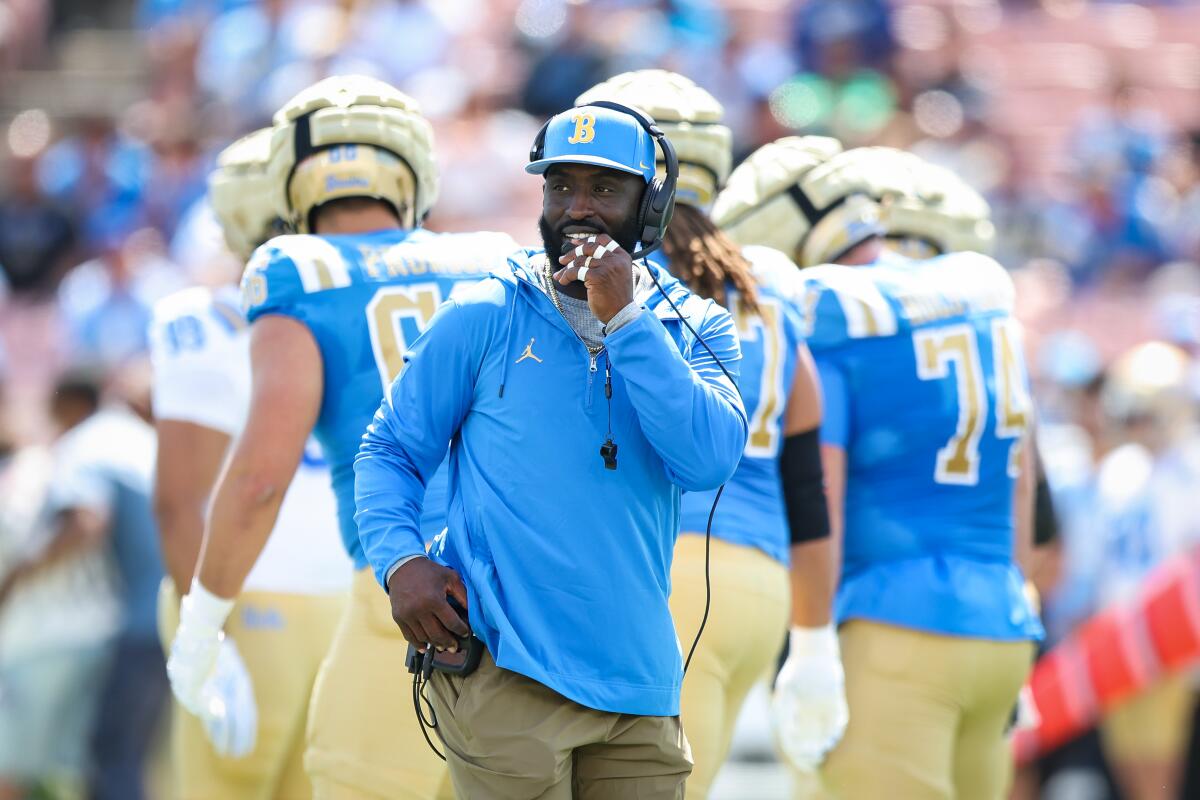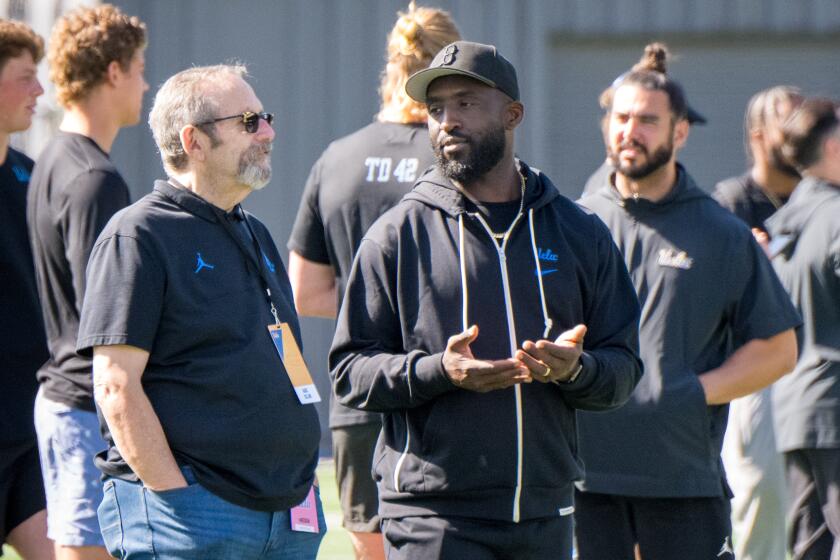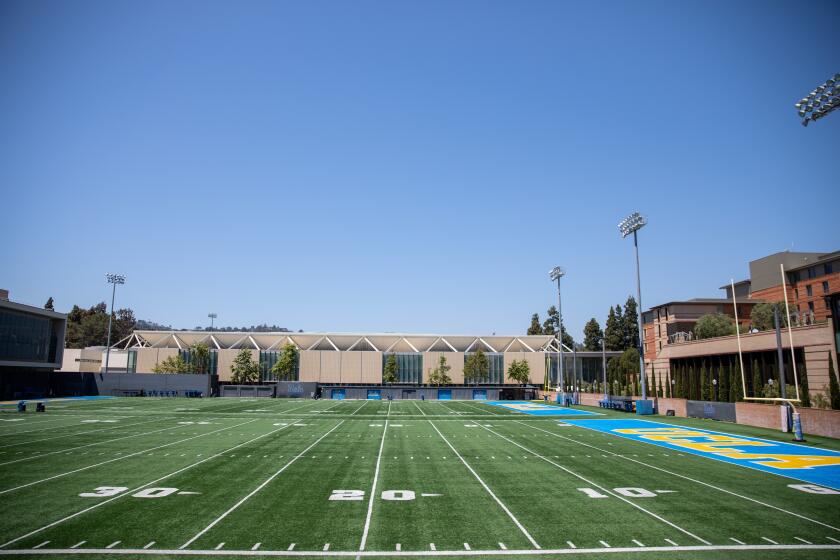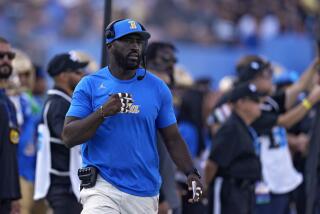UCLA drops Georgia, Auburn from future football schedules in favor of Utah and Cal

- Share via
UCLA is dropping two college football heavyweights from its future football schedules in favor of far more familiar foes.
Gone will be Georgia and Auburn, titans of the Southeastern Conference.
Arriving will be Utah and California, former Pac-12 Conference rivals who joined the Big 12 and Atlantic Coast conferences, respectively, in the wake of UCLA’s departure for the Big Ten. Now they will be nonconference opponents who need no introduction.
UCLA will play Utah in 2025 at the Rose Bowl and in 2030 at Rice-Eccles Stadium in Salt Lake City. The Bruins will face Cal in 2026 and 2028 at Memorial Stadium in Berkeley and in 2027 and 2029 at the Rose Bowl.
UCLA’s recruiting staff under new head coach DeShaun Foster has tripled in size and is embracing new strategies and techniques to attract talent.
Those games replace UCLA’s previously scheduled nonconference games against Georgia in 2025 and 2026 and Auburn in 2027 and 2028, which were canceled by mutual agreement among the schools.
From UCLA’s perspective, these scheduling changes come with several benefits. Among other things, they will reduce the travel burden for a team playing in a coast-to-coast conference, allow the Bruins to revive a rivalry with Cal that dates to 1933, boost recruiting in Northern California and allow UCLA’s fans in the Bay Area to regularly see the team without making a trip to Pasadena.
The series with Cal is not expected to have any impact on UCLA’s $10-million annual “Calimony” payments to its sister school for the next three years that are intended to subsidize the Golden Bears’ athletic department. But the scheduling move could serve as a goodwill gesture between the schools that nurtures their relationship.
UCLA’s approach to nonconference scheduling now features the inclusion of one major-conference team along with two lesser opponents. In 2025, the Bruins will play Nevada Las Vegas and New Mexico in addition to Utah. In 2026, UCLA will face San Diego State and Nevada in addition to Cal. In 2027, the Bruins will play Hawaii and UC Davis in addition to Cal.
From a competitive standpoint, UCLA doesn’t need any SEC schools as part of its nonconference schedule given the move to the Big Ten will stack its schedule with enough quality teams. Utah could certainly add heft to the Bruins’ schedule given that it won the Pac-12 in two of the last three seasons and is immediately expected to contend in the Big 12. Cal, on the other hand, has not posted a winning season since 2019, though it whipped UCLA, 33-7, last season at the Rose Bowl.
In a nod to the bizarre landscape of college sports, the Golden Bears and Bruins will resume their rivalry as part of far-flung conferences.
The UC Regents ordered UCLA to pay rival California the max tax for leaving the Pac-12 for the Big Ten, but in a temporary triumph for the Bruins, they are on the hook for only half the previously allotted period.
More to Read
Go beyond the scoreboard
Get the latest on L.A.'s teams in the daily Sports Report newsletter.
You may occasionally receive promotional content from the Los Angeles Times.









